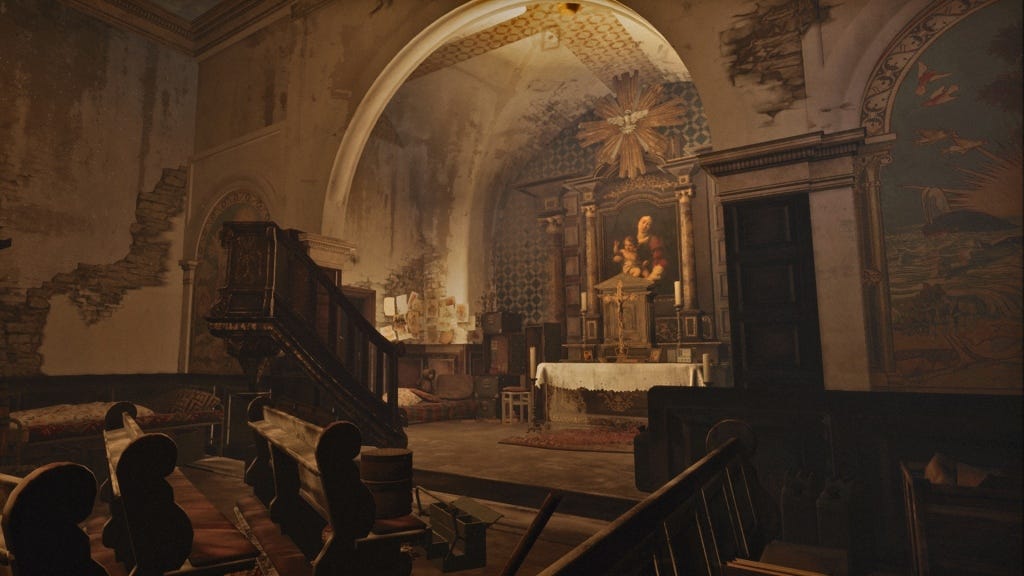Grief and community in "Paradise Lost"
Originally published on adelechapline.com on April 22, 2021
With every chapter, I felt the cavernous grief surrounding me, enveloping me even further into this complex web of inhumanity, devastation, and tragedy. I didn’t expect to be so affected by Paradise Lost but it speaks volumes in its roughly two-hour running time.
In this alternative history, the Allies never won World War II; instead, the war dragged on for an additional 20 years, only ending when the Nazis unleashed nuclear destruction across all of Europe. It is in that bitterly cold and frozen wasteland that we meet Szymon, no more than a boy when he buries his mother and the only other human he has ever known.
Before the bombs, Nazi Germany took action to ensure that the Aryan race would survive. In a massive, underground bunker, they transported the best and brightest of German society and impressive technologies — including the world’s most powerful supercomputer. Naturally, they also included “non-Aryans” to do the brunt of the labor and other distasteful tasks beneath German recognition.
Many years have passed since the bombs went off by the time Szymon makes his way from the surface to the now-abandoned bunker, searching for the man he believes to be his father and whatever scraps of knowledge about his mother he can uncover.
Grief is usually something people shy away from. Pain is awkward. Suffering is uncomfortable. But knowledge helps to keep us grounded in the lessons we need to learn from the failures of history.
For the first five minutes, I was pretty uncertain about the game due to the very slow controls. Szymon couldn’t win a race against a frozen snail. But with small hints here and there, the narrative entices you to keep moving onward towards answers — the primary question being why this immense, underground city is essentially empty. The only source of life is a mysterious woman named Ewa, trapped somewhere deep inside the bunker but her soothing voice crackles across the intercom systems.
The real-life atrocities of German scientists were ghastly and they are magnified in Paradise Lost. In the ruthless pursuit of knowledge and power, with the intention of returning to the surface as a victorious and superior civilization, savage experiments were conducted beneath the surface. These horrors are uncovered by Szymon, who is often too innocent to fully comprehend what the player easily can.
It was heart-wrenching to observe through the eyes of a young boy who just wanted to find answers about his family. I started to not mind how slowly Szymon and I plodded along because I almost didn’t want to know the truth anymore.
Grief is usually something people shy away from. Pain is awkward. Suffering is uncomfortable. But knowledge helps to keep us grounded in the lessons we need to learn from the failures of history. Real-life Germany was already bad enough. Would Paradise Lost be a true story if we hadn’t won?
Besides the historical queries, there’s a deeper human connection. Acknowledging grief and pain keeps us grounded in our own humanity. Especially in an era when we are almost desensitized to suffering, it’s more important than ever to open ourselves up to empathy, to take on that burden of intentional knowledge. Sharing grief and having empathy are keys to community and to not feeling so alone.
With only Ewa’s voice for company — the only other voice he has ever known besides his mother’s — Szymon’s mission quickly goes from wanting to know about his father to not wanting to be alone anymore. He desperately needs to find Ewa because her very existence has given him a reason to keep going.
And what could resonate more with us, especially after a year of isolation, than the desire to no longer be alone?





